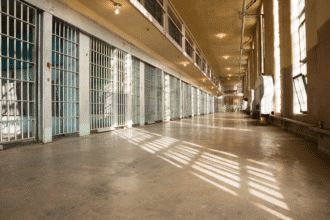Education Secretary Bridget Phillipson recently defended President Donald Trump’s choice to resume correspondence with Russian President Vladimir Putin in order to start Ukraine Peace Talks meant to bring about an end to the war in Ukraine. Declaring that “no negotiated peace without Russia” Phillipson praised Trump’s strategy for getting “the Russians to the table.”
Trump’s diplomatic contacts with Russia represent a dramatic change from that of his predecessor. Declaring Putin a “murderous dictator” and boosting military aid to Ukraine, former President Joe Biden maintained a strict posture against him. But Trump thinks that ending the war depends on direct interaction with Russia. Although some claim this runs to support Russian aggression, his government has underlined the need of communication and compromise in achieving peace.
Should peace negotiations center Ukraine?
Although Phillipson supported the interaction with Russia, he underlined the need of involving Ukraine into any peace negotiations for Ukraine. “Any lasting settlement where it comes from peace does require Ukrainian voices, President Zelensky’s voice to be a central part of that,” she said.
This posture responds to criticism President Trump faces for omitting Ukraine from first negotiations following meetings with Russian officials in Saudi Arabia. Many experts fear that by excluding Ukraine, an agreement favoring Russia at the expense of Ukrainian sovereignty could result.
Officials from Ukraine have voiced worries about how Trump’s strategy might compromise their attempts to recover seized territory. Emphasizing that “peace cannot be negotiated without Ukraine’s direct participation,” Ukrainian Foreign Minister Dmytro Kuleba cautioned that any agreement struck without Kyiv’s permission would be unacceptable.
Is excluding Ukraine from talks a strategic mistake?
Former Conservative leader and foreign minister Lord William Hague voiced great alarm about Trump’s policies and cautioned against ignoring Ukraine since it might cause future wars. “The only way to end this war in a way that discourages future wars is to give as much support as we possibly can to Ukraine—to show Putin that a war of aggression will never succeed,” he said.
Hague warned that excluding Ukraine from Ukraine Peace Talks could empower Russia and other rivals, so causing a “historic mistake.” He likened the circumstances to past failed peace initiatives whereby aggressors may acquire territory by diplomatic means instead of military force.
Many European leaders express Hague’s worries and contend that a premature peace agreement might set a bad precedent. They believe that enabling Russia to impose conditions without Ukrainian input could encourage more territorial expansion in the future.
What Are the Implications of Trump's Recent Comments on Zelensky?
Recent comments made by President Trump, which characterized Ukrainian President Volodymyr Zelensky as a “dictator without elections” and implied that Ukraine has “no cards” in the peace negotiations, have further sour relations. These comments have raised concerns among European allies about the direction of U.S. foreign policy and its commitment to supporting Ukraine’s sovereignty.
Trump has also advised Ukraine to think about caving in some area in return for peace. Ukraine has flatly rejected the plan that his government floated—an internationally monitored vote in contested areas.
The Reaction of European Leaders?
Given these developments, Prime Minister Sir Keir Starmer is scheduled to see President Trump in Washington this week. Starmer intends to advocate for Ukraine’s inclusion in any Ukraine Peace Talks, emphasizing that Kyiv must be “at the heart of any negotiations.”
This visit follows a recent chat between Starmer and French President Emmanuel Macron, when both leaders promised to display “united leadership in support of Ukraine.” They highlighted the importance of a unified European position against Russian aggression and the necessity of incorporating Ukraine in the peace process.
Macron, who has pushed for a bigger European defense policy, has asked for additional military support to Ukraine. Germany and Poland have also reinforced their commitment to providing military aid, underscoring their belief that a robust Ukrainian defense is crucial to European security.
Is the UK dedicated to raising defense spending?
Among these diplomatic initiatives, debates on defense expenditure have taken front stage. Although calls have been made to raise the UK’s defense spending to 2.5% of GDP by 2030, Education Secretary Bridget Phillipson said that a comprehensive strategy might not be presented right away. She pointed out that reaching this goal still remained ambitious and that further specifics would be discussed following the forthcoming strategic defense review.
This aligns with the broader European initiative to bolster defense capabilities and reduce reliance on U.S. military support. Starmer has signaled that NATO allies must “take greater responsibility for their own security,” repeating Trump’s long-standing demand that European countries spend more to their defense budgets.
What Are the Potential Risks of an Insecure Peace Deal?
Defense Secretary John Healey has warned that a “insecure peace” arrangement for Ukraine could lead to fresh fighting. He underlined that alienating Kyiv might only cause a short stop in hostilities, thereby preparing the ground for next conflicts. Healey’s worries draw attention to how difficult it is to negotiate a peace deal guaranteeing long-lasting stability and discouraging Russian future aggression.
Some security experts think that a poorly negotiated peace deal could be worse than continuous conflict. Should Russia keep control of seized areas, it might improve its military posture and initiate further future attacks.
In what way is the UK addressing Russian influence?
In a show of support for Ukraine, the UK government has announced fresh sanctions targeting individuals with close ties to the Kremlin. These regulations attempt to prohibit access to anyone supplying substantial support to the Russian state or who have gained money via their connections to it. Security Minister Dan Jarvis highlighted that such persons are “not welcome” in the UK, denouncing the misuse of Russian resources to support the current war.
In order to counteract Russian disinformation attempts, the UK has also increased its activities to fight propaganda meant to discredit Western support of Ukraine.
What wider consequences follow from the US-Russia Summit?
Relations between President Trump and President Zelensky have drastically deteriorated since the latest U.S.-Russia conference in Saudi Arabia, which omitted Ukrainian participation. Emphasizing the need of Ukraine’s participation in any peace negotiations, Zelensky has said he will not accept any agreement imposed on Ukraine without its consent.
This circumstance underlines the complexities of negotiating a peace accord that respects Ukraine’s sovereignty while satisfying the interests of other global powers. Many experts think that a compromise that does not completely restore Ukraine’s territorial integrity could erode international standards against territory acquisition.
The world community is alert of the changing dynamics between the United States, Russia, Ukraine, and European allies as diplomatic initiatives go on. The results of these negotiations will have significant effects on the future stability of the area as well as international legal doctrines.








